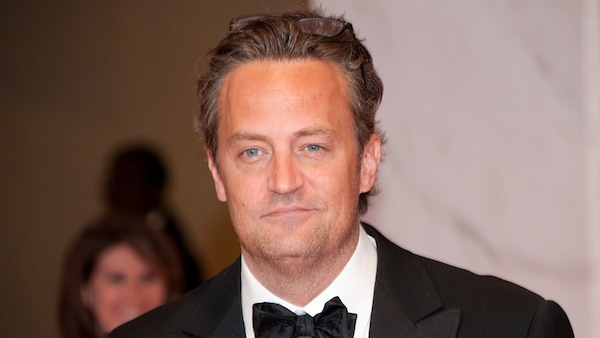The Man Who Was Matthew Perry
Perry, a globally beloved sitcom's star, made braver choices off-camera than he may have made on it.

Last Updated: 02.16 PM, Nov 04, 2023
IN a debate for BBC Newsnight roughly a decade ago, a typically sarcastic Matthew Perry rips into conservative author Peter Hitchens’ opinion about drug addiction being a bad choice as opposed to a health hazard. “Read something other than your own book,” Perry says at the end of the conversation. Somewhere in the middle, he also calls Hitchens ‘Santa’. The fiery debate went viral in an era where ‘internet virality’ was yet to become a thing and it underlined Perry’s front-footed (if flawed) approach to eking meaning out of his own personal troubles with drug addiction. Perry obviously advocated for rehabilitation and for former abusers to become the arbiters of reform around the world. It wasn’t a fool-proof argument at the best of times, but in Perry’s own way, there was a sense of desperate earnestness about it. Coming especially from a man in pain, who maybe wanted to heal by helping others.
Perry never quite shied away from his problems. His struggles with alcoholism on and off the stage were well documented. They were events that Perry himself owned up to in interviews. “I’m doing this in the public eye, so I’m kind of an example to people who might be struggling with this,” he says in an interview with David Letterman in 2002, the prospective peak of his addiction. It’s hard enough being a public figure with a flailing personal life, it is another to be one of the most popular sitcom actors around the world. Like a crest of feverish fame and immortality held against a feeble, mortifying inner sanctum. The dichotomy of that life, the poisonous elasticity at the core of it all gives you this retrospective sense that Perry might have accomplished more off the stage, than he did on it.
Like most cyclical events in life, grief perhaps begets more grief. Perry lost friends to drug addiction, one of them while shooting for a season of Friends. In his memoir Friends, Lovers and the Big Terrible Thing, published only last year, he opens up about being an isolated child, someone who was fed pills from the age of 30 days. It feels like a miracle that the actor achieved all that he did, despite the harrowing details that made up his early life. Unlike most actors or celebrities who opt for secrecy, Perry allowed his struggles to play out in the public eye. There was no defence, or even the coyness of a celebrity fashionably gone rogue. From slurring in front of rapt audiences, to openly admitting ‘living had become harder than consuming’, the actor made braver choices off-camera than he may have made on it.
In 2011, Perry lobbied the US Congress to allow better funding for drug courts, as a safe passage to recovery for addicts who were caught up in the criminal justice system. Before you were sent to prison or handed sentences, these people — Perry argued — needed to first recover and become sober to even understand the value of the judgements they would be subject to. This, coming from a man who claimed he couldn’t remember three seasons of Friends, during which he was almost always drunk, was a socio-political intervention unlike any that other celebrity had attempted. It exemplified Perry’s ‘so what’ attitude that though troublesome in aspects, allowed him the courage to open himself up to both scrutiny and scandal. “I am a drug addict,” he repeatedly says in that heated debate with Hitchens.
Perry also started a foundation called Perry House that helped addicts, persistently reached out to people in need of help and possibly pushed his weight to whatever pier the discourse around rehabilitation and survival demanded. His unguarded display of his problems, his unassuming exhibition of his many vulnerabilities, however, may be his lasting contribution to the conversation around mental health, substance abuse and our general outlook of human suffering. For someone as highly valued as an asset, as loved as the actor was, Perry echoed a sincere lonesomeness. The disarming clumsiness, the anxiety-induced humour… these became ingredients that the language around awareness and abuse was looking for.
The late actor’s career cantered to a stop soon after his problems became public. Perry, however, chose the wilful approach of re-casting himself as the crusader/clown people needed to see and understand to better apprehend a complex problem. There were signs all along, admissions from his colleagues that ‘they were not equipped to handle his situation’ which speaks to the importance of his public demeanour, his accessibility and his attempts to become the evidence, should nobody know where to look for the truth. To Perry, humour and acting were maybe just a means to an end. An end he brushed past several times over, returning to wilfully go again, so someone else wouldn’t have to.
